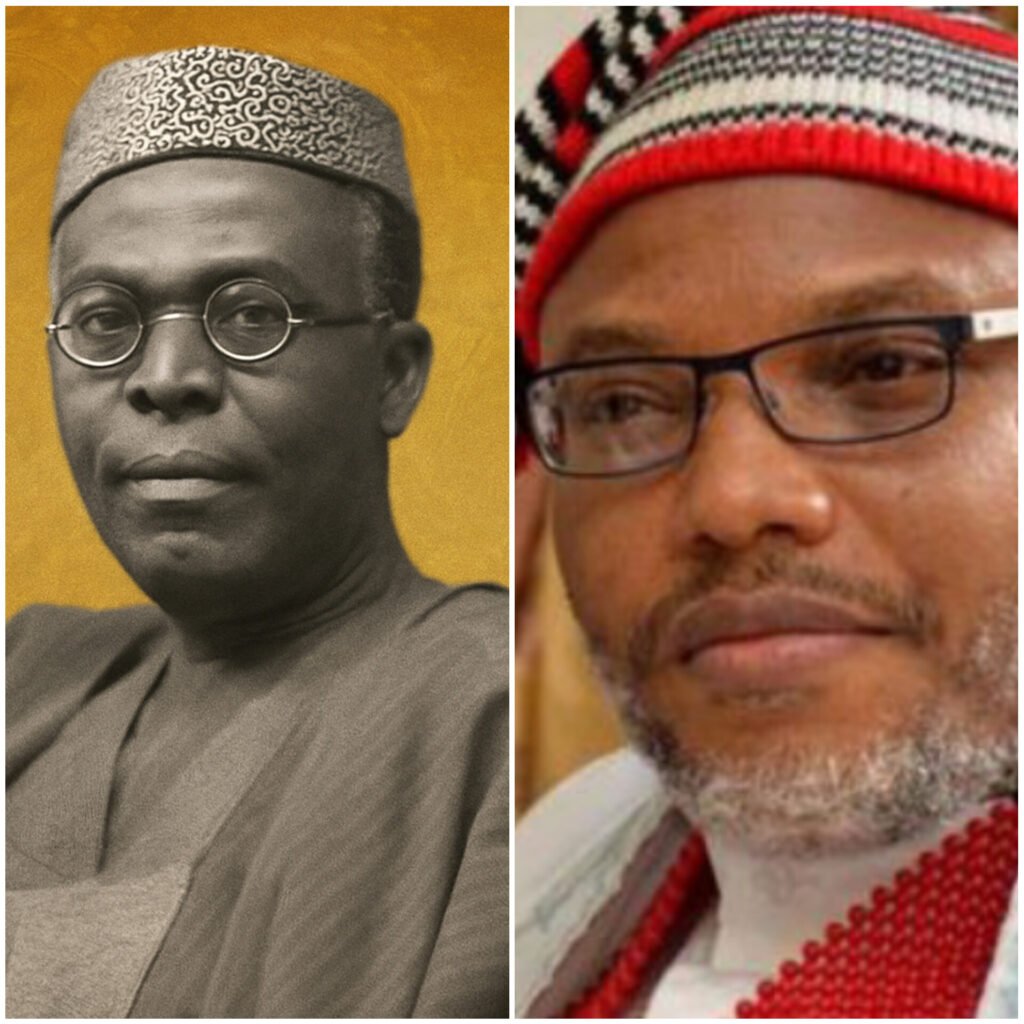
Between November 1962 and September 1963, Chief Obafemi Awolowo was charged and later convicted of treasonable felony. He and 26 associates were accused of plotting to overthrow the Nigerian government.
What followed was a period of intense political turmoil in Western Nigeria—popularly called the “Wild Wild West”—which peaked between 1964 and 1965. The term, coined by the press, captured the anarchy, arson, looting, and murder that engulfed the region. This unrest stemmed from a fierce power struggle between factions of the Action Group – one loyal to Chief Obafemi Awolowo and the other to Chief Samuel Ladoke Akintola. The struggle was often expressed through a violent protest strategy that came to be known as Operation Wetie.
The chaos in the Western Region, popular sympathy for Awolowo, and widespread frustration with the central government of Prime Minister Tafawa Balewa were major factors behind the January 1966 coup. The coup, led by five young army majors—four Igbo and one Yoruba—was intended as a patriotic attempt to save a floundering nation. Jubilation broke out across Nigeria. But within days, political actors reframed it as an “Igbo coup.”
The previously warring political elites of the North and West suddenly closed ranks. In July 1966, Northern officers led a counter-coup in which General Johnson Aguiyi-Ironsi and nearly 200 Igbo officers were murdered. What followed was the massacre of thousands of innocent Igbo civilians across the country, culminating in the secession of Biafra and the tragic civil war.
In essence, the Igbo and the peoples of the Eastern Region were scapegoated for a crisis originally rooted in the bitter rivalry between the West and the North—one they had no hand in creating.
Fast-forward to the present. Since 2009, Boko Haram and other extremist groups have devastated Northern Nigeria. Thousands have been killed, hundreds of villages and worship centers razed, and millions displaced. Today, the North can—without exaggeration—be described as the “Wild Wild North.” Four presidents, none of them Igbo, have attempted and failed to contain this catastrophe.
In 2012, the Indigenous People of Biafra (IPOB) emerged under the leadership of Mazi Nnamdi Kanu, with the stated goal of confronting systemic injustices against the Igbo within the Nigerian federation—and, if that fails, demanding a referendum for a peaceful exit. The group was quickly proscribed as a terrorist organization, and suspected members were hunted, detained, or killed extrajudicially.
Between June 2021 and November 2025, Kanu was abducted in Kenya and forcibly returned to Nigeria in violation of international law. After a highly contentious trial—and only days after Islamic terrorists ambushed and killed a Brigadier General in Borno State—Kanu was convicted of terrorism and sentenced to life imprisonment.
The paradox is stark, and the timing ominous. Once again, efforts seem underway to make the Igbo scapegoats for crises originating elsewhere—crises they neither caused nor benefited from.
The roles from the 1960s have reversed: a president from the Western Region now presides over a violent breakdown of law and order in the North. Yet not one of the individuals who have openly taken up arms against Nigeria stands trial. Not one of the well-known financiers, enablers, or collaborators of terrorism has been brought to book. Instead, an Igbo man is in the dock— a convenient scapegoat. Once again, an ethnic group is being baited.
Wisdom demands that the Igbo stand back and allow Nigeria to confront the contradictions it has long refused to resolve. This is not a time for rash activism, bravado, or sabre-rattling. It is a time to watch and wait. Igbos must avoid falling into the same historical traps twice. Igbos are not the only victims of systemic injustice in Nigeria. But they have paid the greatest price, often unjustly. Nigeria is now happening to all Nigerians. This is the best time to step back and let those who caused the problems carry the can. Whatever good awaits may yet come, but only through wisdom, restraint, and patience.
Do we possess these virtues today? Have we learned from the mistakes of our fathers? Time, as always, will tell.
![]()


